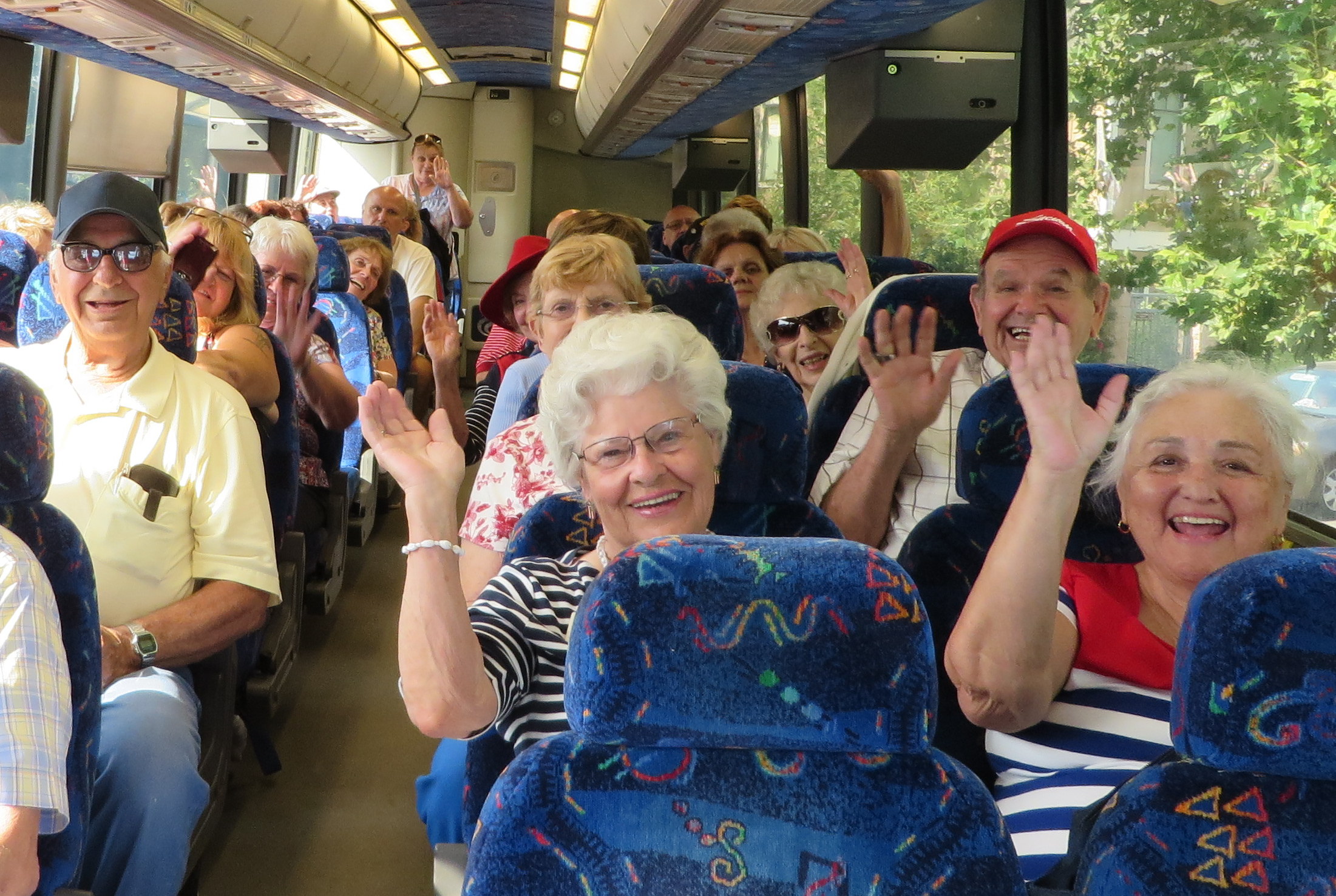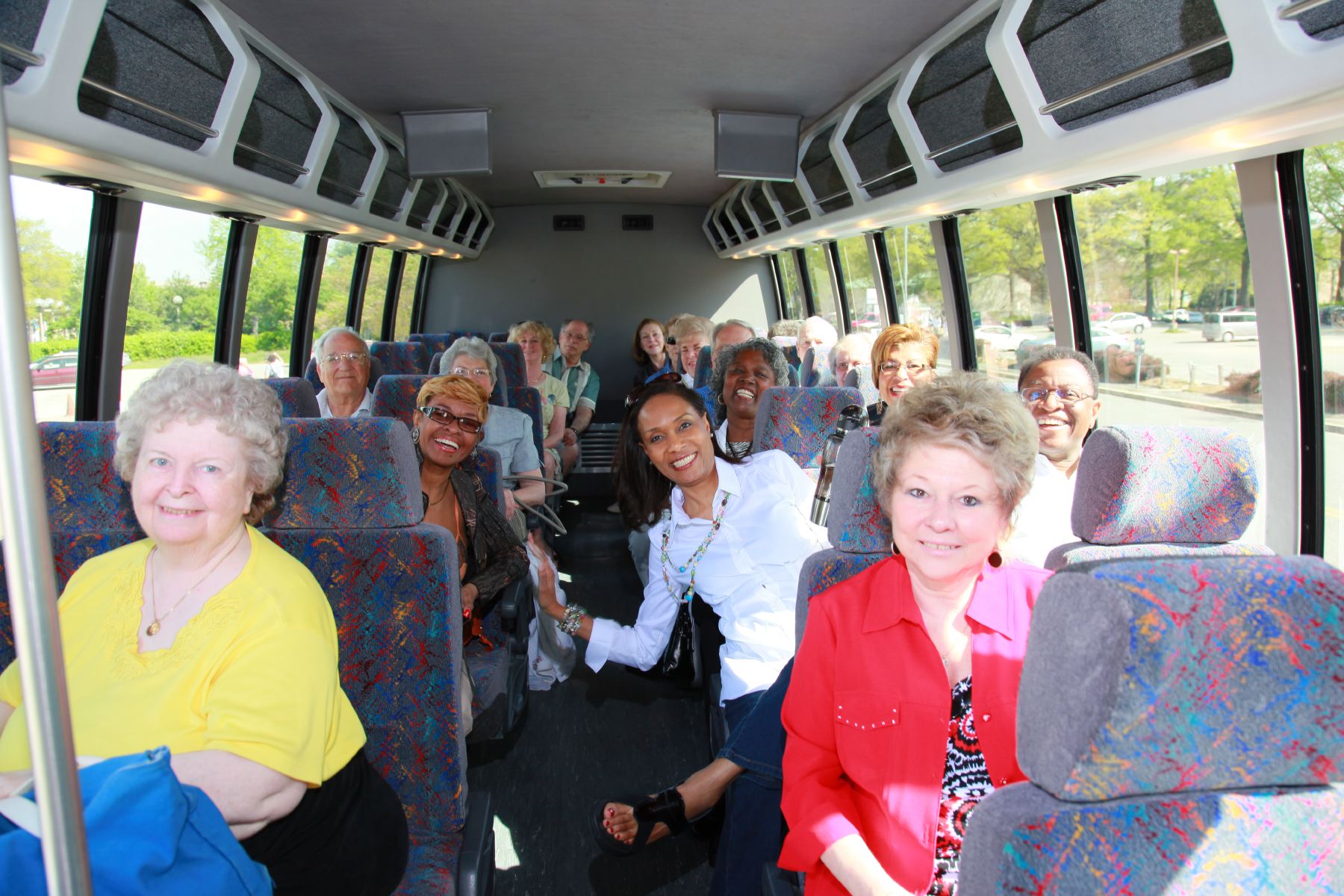Bus trips for senior citizens offer a unique blend of adventure, relaxation, and social interaction. These journeys cater to a diverse range of interests and physical abilities, providing opportunities for exploration, relaxation, and connection. From day trips exploring local historical sites to multi-day tours across stunning landscapes, the options are as varied as the seniors themselves. This guide delves into the planning, benefits, and considerations involved in making these trips a truly enriching experience.
This article explores the diverse world of senior citizen bus trips, covering everything from choosing the right trip type and destination to budgeting and ensuring a comfortable and safe journey. We examine the various factors seniors need to consider when planning their trip, including accessibility, health considerations, and social aspects. We also provide practical tips and resources to make the planning process smoother and more enjoyable.
Health and Safety Considerations: Bus Trips For Senior Citizens
Planning a bus trip for senior citizens requires meticulous attention to health and safety. The well-being of participants is paramount, and proactive measures can significantly reduce the risk of incidents and ensure a smooth, enjoyable journey for everyone. This section details key considerations for ensuring a safe and healthy trip.
Potential Health Concerns During Bus Travel, Bus trips for senior citizens
Prolonged periods of sitting, changes in altitude, and exposure to varying climates can pose health challenges for seniors. Common concerns include deep vein thrombosis (DVT), dehydration, exacerbation of pre-existing conditions like heart disease or respiratory problems, and falls. For example, a sudden change in altitude can trigger discomfort for individuals with pre-existing cardiovascular issues. Similarly, prolonged immobility increases the risk of blood clots.
Addressing these potential problems requires a multi-faceted approach involving preventative measures and emergency preparedness.
Medication and Medical Information
Proper medication management is crucial. Seniors should carry all prescribed medications in their original containers, clearly labeled with their name, dosage, and instructions. A comprehensive list of all medications, including dosages and potential side effects, along with any allergies, should be readily available. A copy of this information should also be provided to a designated trip leader or emergency contact.
This ensures that in case of an emergency, medical professionals have immediate access to critical information. For instance, a readily available list helps paramedics quickly administer the correct treatment.
Emergency Contact Information
Maintaining a readily accessible emergency contact list is non-negotiable. This list should include the names, phone numbers, and addresses of family members, physicians, and other relevant individuals. It should also include any relevant medical conditions and emergency contacts. The list should be carried on the person, shared with a designated trip companion, and given to the tour operator.
This is critical for rapid response in case of unforeseen medical emergencies or other incidents. For example, having a readily available list ensures that the emergency services can contact the correct family member in a timely manner.
Safety Protocols Implemented by Tour Operators
Responsible tour operators prioritize safety. This includes implementing protocols such as regular driver breaks, adherence to speed limits, and regular vehicle maintenance checks. Emergency medical kits equipped with essential supplies should be carried on board. Clear communication channels between the driver, tour guides, and participants ensure prompt response to any incidents. Furthermore, operators may utilize GPS tracking systems for real-time monitoring of the bus location and provide detailed itineraries to participants and their families.
For example, some operators might provide a dedicated emergency hotline number for immediate assistance.
Cost and Budgeting

Planning a senior citizen bus trip requires careful consideration of various costs to ensure a financially responsible and enjoyable experience. Understanding the different expense categories and employing effective budgeting strategies are crucial for successful trip organization.
Transportation Costs
Transportation forms a significant portion of the overall trip budget. This includes the cost of chartering a bus, which varies depending on the size of the vehicle, the distance traveled, and the duration of the rental. Fuel surcharges and driver fees are additional factors to consider. For longer trips, potentially involving flights or multiple modes of transport, these costs can escalate considerably.
For example, a week-long trip across multiple states will cost more than a day trip to a nearby city. Careful negotiation with transportation providers can yield savings.
Accommodation Expenses
Accommodation costs depend heavily on the chosen destination and the type of lodging. Options range from budget-friendly motels to more luxurious hotels. Group discounts are often available for large senior citizen groups, leading to potential cost savings. Consideration should also be given to the location of the accommodation in relation to planned activities to minimize transportation expenses within the destination.
For instance, choosing a hotel near major attractions can reduce the need for taxis or other local transport.
Activity and Entertainment Costs
The cost of activities and entertainment varies greatly. Some trips may include pre-arranged tours and excursions, while others may offer a more flexible itinerary. Entrance fees to museums, national parks, or other attractions need to be factored into the budget. Similarly, the cost of entertainment, such as shows or concerts, must be considered. Planning activities that are free or low-cost, such as walking tours or picnics, can significantly reduce expenses.
For example, a trip to a national park with free entry and hiking trails will be cheaper than a trip to a theme park with multiple paid attractions.
Meal Costs
Food costs can be a substantial part of the overall budget. The number of meals included in the trip package significantly influences the overall expense. Catering for dietary restrictions or preferences within the group may also increase costs. Careful planning of meals, including the possibility of self-catering options or utilizing affordable local restaurants, can help keep food costs under control.
For example, packing some snacks and lunches can help reduce expenses compared to relying solely on restaurants for every meal.
Sample Budget for a Hypothetical Senior Citizen Bus Trip
Let’s consider a hypothetical three-day, two-night bus trip to a nearby coastal town for a group of 20 seniors.
| Expense Category | Estimated Cost per Person | Total Cost |
|---|---|---|
| Bus Transportation | $75 | $1500 |
| Accommodation (2 nights) | $100 | $2000 |
| Meals (Breakfast, Lunch, Dinner x 2 days) | $150 | $3000 |
| Activities & Entrance Fees | $50 | $1000 |
| Contingency Fund (10%) | $37.50 | $750 |
| Total | $362.50 | $7250 |
Budgeting Tips and Affordable Options
Several strategies can help seniors find affordable options and manage their trip budgets effectively. These include booking trips during the off-season or shoulder seasons to benefit from lower prices. Seeking group discounts on accommodation, transportation, and activities is also highly recommended. Utilizing senior citizen discounts and travel passes where applicable can further reduce expenses. Comparing prices from multiple providers before booking is essential to secure the best value for money.
Finally, considering destinations closer to home can significantly reduce transportation and accommodation costs.
Ultimately, bus trips for senior citizens represent a valuable opportunity for adventure, socialization, and the creation of lasting memories. By carefully considering the factors discussed in this guide – from trip type and destination selection to health and safety protocols – seniors can embark on journeys that are both enriching and enjoyable. With thoughtful planning and a spirit of adventure, these trips can provide a welcome respite from daily routines and foster a sense of community and shared experience.
The key is to choose a trip that matches individual needs and preferences, ensuring a safe, comfortable, and unforgettable experience.
Investigate the pros of accepting active duty military vacation deals in your business strategies.


